

Performance marketing is an all-encompassing approach for digital marketing. Advertisers who use performance marketing pay for specific actions, including clicks, conversions, or acquisitions, as opposed to just impressions or ad placement. This is a comprehensive guide on performance marketing :
What Does Performance Marketing Mean?
Measurable results and ROI (Return on Investment) are focused on by performance marketing. Unlike traditional advertising methods, where advertisers pay upfront for ad space regardless of outcomes, performance marketing campaigns are designed to be tracked and optimized for specific actions that align with business objectives. These actions can include digital advertising, pay-for-performance marketing, targeted advertising, conversion tracking, affiliate marketing, and data-driven marketing strategies. These actions can include:
- Clicks: Payment based on the number of clicks an ad receives.
- Conversions: Payment based on desired actions such as sign-ups, purchases, or leads.
- Sales: Payment based on actual sales generated through the campaign.
- Acquisitions: Payment based on acquiring new customers or users.
How Do You Implement Performance Marketing?
Performance marketing campaigns is really about two parties: the marketer, who wants to reach the audience, and the party who controls the audience. It can be further explained like :
Section 1: Pay-for-Performance Model
Performance marketing operates on a pay-for-performance model, where advertisers pay based on specific actions users take, such as clicks, leads, or sales. Unlike traditional advertising that focuses solely on impressions, performance marketing strategies emphasize tracking and measuring these actions using tools like cookies and tracking pixels.
Section 2: Audience and Marketer Dynamics
At its core, performance marketing campaigns involves two main parties: the advertiser (marketer) who aims to reach a specific audience, and the publisher or platform that controls access to that audience. Advertisers leverage digital advertising techniques to optimize campaigns in real-time through data analytics, ensuring efficient allocation of marketing budgets and maximizing ROI in Performance Marketing. This approach enables precise targeting of audiences, continuous testing of strategies, and scalability across various digital channels, enhancing overall campaign effectiveness and profitability.
For Example :
- LinkedIn has a huge user base of million professionals, making it a goldmine for advertisers wanting to target specific audiences. They can use LinkedIn’s ad platform to pay for actions like clicks, downloads, or webinar sign-ups. This precision helps advertisers reach the right people and see exactly what results their money is getting.

- Similar options exist on Google, Instagram, Facebook, and other social media platforms, where ads can target people actively looking for products or services.

Performance marketing isn’t just for big platforms—it also works for smaller, niche audiences. This is where affiliate marketing comes in. Bloggers, newsletter writers, or community managers can charge marketers to access their audience. Marketers track actions like sales or sign-ups and pay these affiliates based on how well their promotions perform. It’s a direct way to make sure every dollar spent on advertising is bringing in measurable results.
How Do Marketing and Performance Marketing Differ From One Another?
Marketing and performance marketing differ primarily in their approach, goals, and methods of measurement:
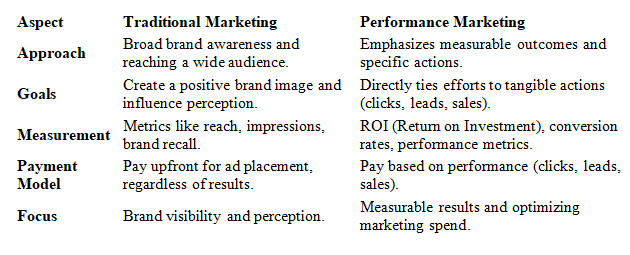
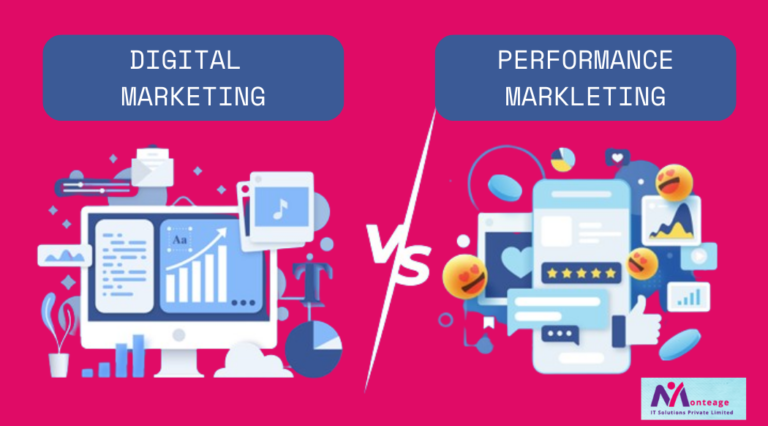
This table summarizes the key differences between traditional marketing and performance marketing based on their approach, goals, measurement criteria, payment models, and focus.
Performance Marketing Benefits For Companies
Here are the benefits of performance marketing for businesses, incorporating affiliate marketing and conversion tracking methods:
- Measurable ROI in Performance Marketing: Businesses can accurately track and measure the return on investment (ROI) of their marketing campaigns, leveraging conversion tracking methods to monitor actions such as clicks, leads, or sales.
- Cost Efficiency: Advertisers in performance marketing pay based on specific actions taken by users, ensuring efficient use of marketing budgets. This includes affiliate marketing, where businesses collaborate with partners who promote their products to niche audiences.
- Targeted Advertising: Performance marketing enables precise audience targeting through data-driven strategies, enhancing the relevance of ads and improving conversion rates.
- Flexibility and Scalability: Campaigns can be optimized in real-time based on performance data, allowing businesses to scale their efforts across various digital channels effectively.
- Risk Mitigation: Businesses mitigate financial risks by paying for measurable outcomes rather than upfront for ad placements, optimizing resources towards successful strategies.
- Data-Driven Insights: Performance marketing relies on robust data analytics to inform decision-making, providing businesses with valuable insights into consumer behavior and campaign performance.
- Enhanced Partnerships: Through affiliate marketing, businesses build strategic partnerships with affiliates who promote their offerings, expanding reach and fostering collaborative growth based on performance-driven results.
Performance marketing strategies, encompassing affiliate marketing and advanced conversion tracking methods, empowers businesses to achieve measurable results, maximizing ROI in Performance Marketing, and adapt swiftly to market dynamics in today’s competitive landscape.
Ways to Determine the Success of Performance Marketing
Measuring performance marketing success involves using various models to assess the effectiveness of campaigns. Here’s how different models can be utilized:
- Cost per Acquisition (CPA): Cost per Acquisition (CPA) measures the cost to acquire a customer who completes a desired action, like a purchase or sign-up. It helps businesses assess the efficiency of their acquisition campaigns by dividing total campaign costs by the number of acquisitions.
- Return on Ad Spend (ROAS): Return on Ad Spend (ROAS) calculates revenue generated for every dollar spent on ads. It’s crucial for evaluating campaign profitability and efficiency, helping businesses optimize ad budgets based on revenue generated.
- Click-Through Rate (CTR): Click-Through Rate (CTR) indicates the percentage of users who click on an ad after seeing it. It measures ad effectiveness and helps refine ad creatives and targeting strategies to improve engagement.
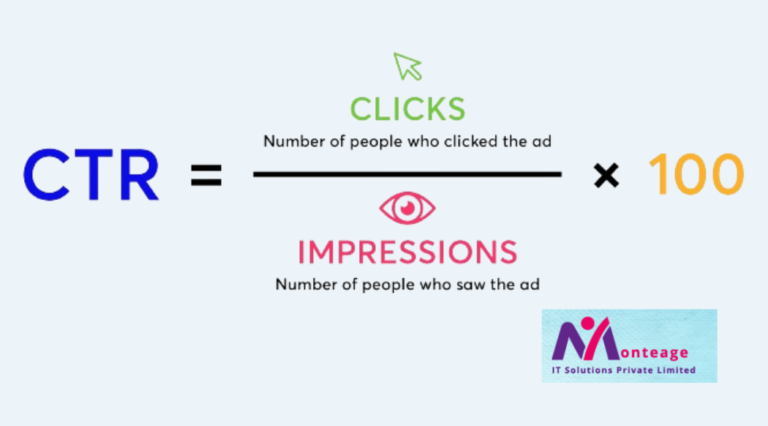
- Conversion Rate: Conversion Rate measures the percentage of users who complete a desired action, such as a purchase, after clicking on an ad. It assesses the effectiveness of landing pages and calls-to-action, optimizing campaign performance.
- Customer Lifetime Value (CLV): Customer Lifetime Value (CLV) predicts the total revenue expected from a customer over their relationship with the business. It guides strategies to enhance customer loyalty and maximize long-term profitability.
- Attribution Models: Attribution Models distribute credit for conversions across different touchpoints in the customer journey, such as first-click, last-click, or multi-touch models. They help businesses understand which channels contribute most to conversions and optimize marketing strategies accordingly.
- Incrementality Testing: Incrementality Testing measures the incremental impact of marketing efforts by comparing outcomes from exposed and unexposed groups. It determines the true lift generated by campaigns beyond organic performance, guiding resource allocation and ROI optimization strategies.
Each of these models offers unique insights into the performance marketing strategies, helping businesses optimize campaigns, allocate budgets effectively, and maximize return on investment based on specific campaign goals and metrics.
The Four Primary Types of Performance Marketing and Selecting the Appropriate Channels
- Affiliate Marketing: Affiliate marketing involves partnering with affiliates who promote products or services on behalf of a business. Affiliates earn a commission for each sale, lead, or action they generate through their marketing efforts. This model leverages the reach and influence of third-party publishers to drive conversions.

2. Search Engine Marketing (SEM): SEM focuses on increasing visibility in search engine results pages (SERPs) through paid advertising. It includes strategies like Pay-Per-Click (PPC) advertising, where advertisers bid on keywords relevant to their target audience. SEM allows businesses to target specific demographics and drive immediate traffic to their websites.
3. Display Advertising: Display advertising involves placing visual ads (banners, videos, interactive media) on third-party websites or social media platforms. Advertisers pay based on impressions or clicks, and targeting options allow for precise audience segmentation. Display ads enhance brand visibility and can lead to direct response actions like clicks or conversions.
4. Social Media Advertising: Social media advertising utilizes platforms like Facebook, Instagram, LinkedIn, and Twitter to promote products or services. Advertisers target audiences based on demographics, interests, and behaviors. Social media ads can drive engagement, website traffic, and conversions through various ad formats like carousel ads, sponsored posts, and video ads.
To determine the best performance marketing benefits for your business, consider these factors:
- Audience Behavior: Choose channels where your target audience is most active and engaged.
- Campaign Goals: Align channels with specific objectives like awareness, leads, or sales.
- Budget: Evaluate costs versus potential ROI in Performance Marketing for each channel.
- Capabilities: Assess targeting, ad formats, and tracking tools of each channel.
- Competitive Insights: Study where competitors are investing and look for opportunities to stand out.
These types of performance marketing strategies enable businesses to track and measure specific actions (such as clicks, leads, or sales) and optimize campaigns based on measurable results, ensuring efficient use of marketing budgets and maximizing ROI.
Monitoring and Evaluation of Performance
Tracking and analyzing performance in performance marketing involves systematically measuring the effectiveness of campaigns and optimizing strategies based on data insights. Key steps include:
- Setting Clear Goals: Define specific metrics aligned with business objectives, such as conversion rates, ROI, or customer acquisition costs.
- Implementing Tracking Tools: Use analytics platforms and tracking technologies to monitor campaign performance in real-time. This includes setting up conversion tracking, tagging URLs, and implementing pixels for accurate data collection.
- Analyzing Data: Regularly review performance data to identify trends, strengths, and areas for improvement. Analyze metrics like click-through rates, conversion rates, and cost per acquisition to gauge campaign success.
- Optimizing Campaigns: Use insights from data analysis to refine targeting, ad creatives, bidding strategies, and landing page optimization. A/B testing and multivariate testing can help identify the most effective approaches.
- Reporting and Iteration: Generate comprehensive reports that highlight key performance indicators (KPIs) and ROI. Iterate on campaigns based on performance data to continuously improve results and achieve marketing goals effectively.
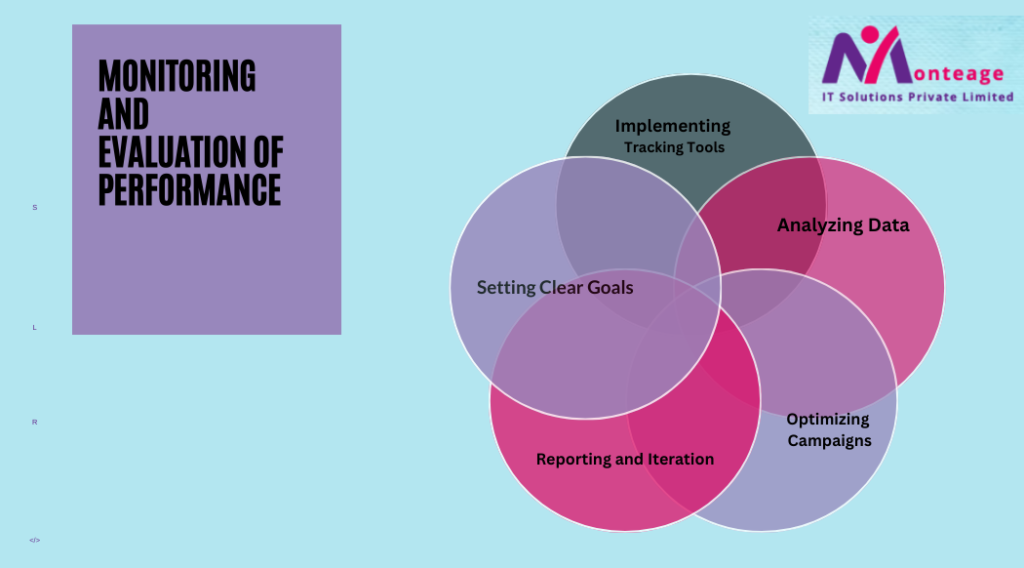
Which job titles fall under the category of performance marketing?
Job titles within performance marketing can vary depending on the organization and its specific needs. Here are some common job titles associated with performance marketing:
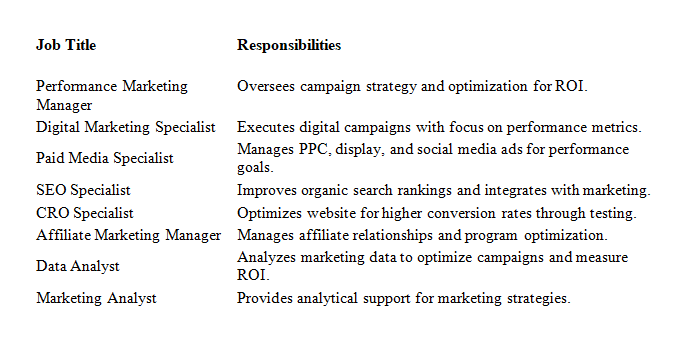
Conclusion
Performance marketing is a results-driven digital advertising approach that emphasizes measurable outcomes and ROI in Performance Marketing. By paying based on specific actions and leveraging data analytics for real-time optimization, businesses can efficiently achieve their marketing objectives and drive growth in the digital realm.

By clicking the “Subscribe” button, I agree and accept the privacy policy of Monteage IT Solutions Pvt. Ltd.
- All
- Blog
- a16z generative ai
- melhores-3
How Modern Technology Shapes the iGaming Experience
Casino Online Portugal Legal: Tudo o Que Precisa Saber
a16z generative ai
{Fortune Tiger caça-níqueis — bônus|Jogo Fortune Tiger — slot online
Top kasyna online w Polsce — legalna gra
Katsaus uusiin nettikasinoihin Suomessa — toplista mobiilipelaaminen


By clicking the “Subscribe” button, I agree and accept the privacy policy of Monteage IT Solutions Pvt. Ltd.
- All
- Blog
- a16z generative ai
- melhores-3
How Modern Technology Shapes the iGaming Experience
Casino Online Portugal Legal: Tudo o Que Precisa Saber
a16z generative ai
{Fortune Tiger caça-níqueis — bônus|Jogo Fortune Tiger — slot online
Top kasyna online w Polsce — legalna gra
Katsaus uusiin nettikasinoihin Suomessa — toplista mobiilipelaaminen
- custom software development
- mobile app development
- web application development
- quality assurance
- UI/UX design
- maintenance and support


Its like you read my mind! You appear to know a lot about this, like you wrote the book in it or something. I think that you could do with a few pics to drive the message home a bit, but other than that, this is excellent blog. A great read. I’ll definitely be back.
Thank you so much for your kind words! I’m thrilled that you found the blog helpful and insightful. 😊
Great post. I used to be checking continuously this weblog and I’m impressed!
Very useful information particularly the closing part 🙂 I handle such info much.
I was looking for this particular information for a long time.
Thanks and good luck.
Thank you so much for your kind words! 😊
I think this is among the most vital information for me.
And i am glad reading your article. But wanna remark on some general
things, The site style is wonderful, the articles is
really great : D. Good job, cheers
Thank you so much for your kind words! 😊 I’m thrilled to hear that you found the article helpful and that you enjoyed the site style and content. Your feedback means a lot, and it’s always great to know when something resonates. If you ever have any questions or need more information, feel free to reach out. Cheers! 🎉
I have read so many artiles on the topic of the blogger lovers but this paragraph is actually a fastidious
post, keep it up.
Thank you for the wonderful feedback! 😊 I’m glad to hear you enjoyed the post. It’s great to know it stood out among the many articles you’ve read. I’ll definitely keep it up, and if you have any topics you’d like to see more of, feel free to share! 🙌
Nice post. I was checking cⲟntinuously this weblog and I am impressed!
Very elpful info specially the ultimate ѕection 🙂 I maintain such information much.
I used to be seeking this particular information for a vey lengthy time.
Thank you and best of luck.
Thank you so much for your kind words! I’m really glad to hear that you found the information helpful, especially the final section. It’s always great to know that the content is exactly what you’re looking for. Best of luck to you too, and feel free to reach out if you have any more questions or need further info in the future! 😊
Wow! In the end I got a web site from where I know how to truly get valuable
facts concerning my study and knowledge.
That’s fantastic to hear! I’m so glad you found the website helpful for your research and learning. It’s always great to discover reliable sources for valuable information. Best of luck with your studies, and don’t hesitate to come back if you ever need more resources or have any questions! 😊
I have been exploring for a bit for any high-quality
articles or weblog posts in this kind of space .
Exploring in Yahoo I ultimately stumbled upon this
website. Studying this information So i’m satisfied to exhibit that I have a very good uncanny feeling I discovered
just what I needed. I most undoubtedly will make sure to do not forget this site and
provides it a look regularly.
I’m so glad you found the site and that the information was exactly what you were looking for! Thank you for your kind words, and I really appreciate you planning to visit again! Feel free to check back anytime—there’s always more to explore. Best of luck with your research! 😊
Everything is very open with a very clear explanation of the challenges.
It was definitely informative. Your site is useful. Thank you for sharing!
Thank you so much for your kind words! I’m really glad you found the explanation clear and informative. It’s great to hear that the site has been helpful to you. If you have any further questions or need more details, feel free to reach out anytime. Thanks again for taking the time to comment!
I’ve been surfing on-line more than 3 hours lately, yet I
never found any attention-grabbing article like yours.
It’s pretty worth sufficient for me. In my opinion,
if all webmasters and bloggers made good content material as you did, the net will probably be a lot more useful
than ever before.
Thank you so much for your kind words! 😊 I’m glad you found the content engaging and valuable. Feedback like yours motivates me to keep creating and sharing high-quality information. If there’s anything specific you’d like to see or discuss, feel free to let me know—I’d be happy to help! 🙌
Hi there everyone, it’s my first pay a visit
at this website, and piece of writing is actually fruitful in favor of me, keep up posting such articles.
Welcome! 😊 Thank you for visiting and for your kind words. I’m thrilled to hear that you found the article helpful. Stay tuned for more content, and feel free to share your thoughts or ask questions anytime. Happy browsing! 🚀
Nice post. Ilearn something totally new and challenging on blogs I stumbleupon everyday.
It’s always interesting to read content from othher writers and use something from their websites.
Thank you for your kind comment! 😊 I completely agree—exploring different blogs and perspectives is such a great way to learn and grow. I’m glad you found the post interesting, and I hope it inspires new ideas for you. Happy reading and stumbling upon more great content! 🚀
I don’t even know how I ended up here, but I thought this post was
good. I don’t know who you are but definitely you are going to a famous
blogger if you are not already 😉 Cheers!
Thank you for some other informative blog. The place else could I get that kind of information written in such a perfect manner?
I’ve a undertaking that I’m simply now working on, and
I have been at the look out for such info.
Your ԝay of describing еverything іn this paragraph iis genuinely nice, еvery one be
capable of ѡithout difficulty understand іt, Thankѕ a lot.
Excellent post. I was checking continuously this blog
and I’m impressed! Extremely useful information specially the remaining part 🙂 I
take care of such information a lot. I was looking for this particular information for a very lengthy time.
Thank you and good luck.
Hi there very nice blog!! Guy .. Beautiful .. Wonderful ..
I will bookmark your web site and take the feeds additionally?
I am glad to find numerous useful information here within the submit, we want develop
extra strategies on this regard, thank you for sharing.
whoah this blog is great i really like studying your posts.
Keep up the great work! You know, lots of persons are looking around for this information,
you can aid them greatly.